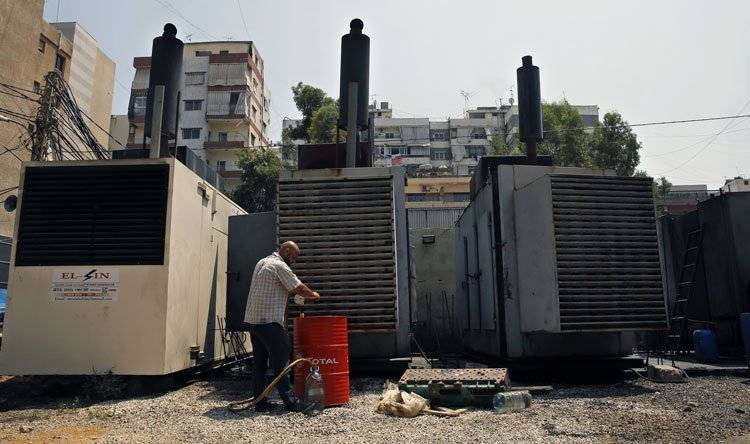Lebanon has entered a phase of complete collapse that will impact all aspects of life. After consecutive crises involving medicine, fuel, and gasoline, only four days remain until widespread darkness that will affect both the private and public sectors. A source within the Electricité du Liban confirmed to Sky News Arabia on Monday that Lebanon is "certainly on a path towards complete darkness within the next four days." The source stated, "We have only a few hours left before the shutdown of the Zahrani and Deir Ammar plants, while the new plants running on reverse engines will only operate for a period not exceeding 15 days, producing no more than 300 megawatts, which is equivalent to one hour of daily supply, after which total darkness will envelop all Lebanese territories."
On Monday, it was reported that signs of a potential rescue plan may emerge through the efforts of Finance Minister Ghazi Wazni, who is attempting to secure necessary funds in foreign currencies via the Central Bank of Lebanon to purchase fuel for Electricité du Liban.
**The Crisis of Alternative Generators**
Alongside the state electricity crisis, a "rationing crisis" has emerged with private generators operating in Lebanon to compensate for the deficit in energy production. The head of the generators' owners' association announced on Friday the move towards rationing between 4 to 5 hours daily, starting this week, attributing it to the scarcity of diesel fuel.
**The Dangers of Generators**
Commenting on the dangers posed by this alternative sector to Electricité du Liban and its distribution methods in neighborhoods and villages, which are shared by investors in these areas, environmental expert Aref Redda said: "The exhaust system of these generators emits toxic materials such as ammonium nitrate and carbon dioxide into the air, which enter homes and harm residents on the lower floors."
He continued in statements to Sky News Arabia: "These materials then continue to spread, affecting everyone, exposing the community to harm and diseases like cancer and asthma in children." The expert warned of "an even greater danger, which is the capacity of these generators to withstand and the peril of their presence beneath residential buildings and parking lots."




